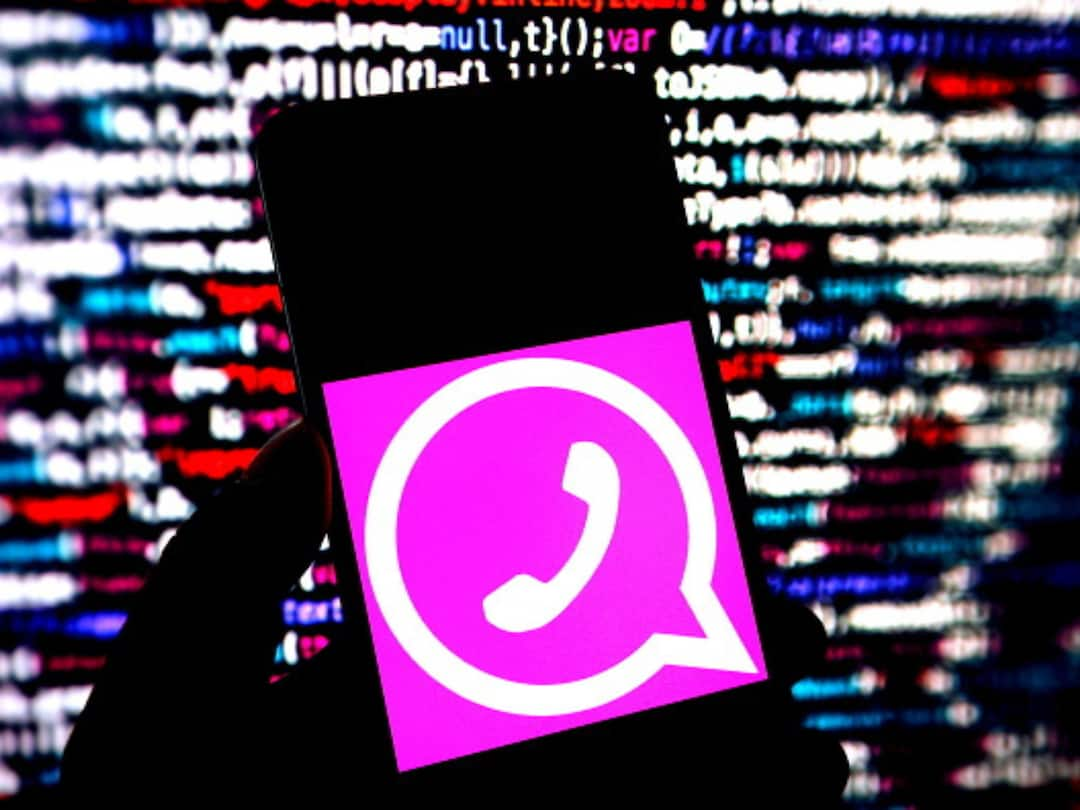Pink WhatsApp Scam Is Real, Stay Alert To Be Safe. Mobile Antivirus Can Help Too
WhatsApp Pink malware is relatively new that apparently changes the theme colour of the app and also steals sensitive personal data.

The pink WhatsApp logo pictured above may look enticing but be afraid if somebody tells you they would help get "WhatsApp Pink" via an exclusive update and it would add extra features to the messaging platform. Meta-owned WhatsApp is the world's most popular messaging and also the biggest target of online scammers and hackers. While Telegram and WhatsApp scams are not new, WhatsApp Pink malware is relatively new that apparently changes the theme colour of the app and also steals personal data. Flagged by security researcher Rajashekhar Rajaharia last year that WhatsApp Pink is a virus that is spread via Android Application Package (APKs). The malicious virus is still on the prowl and has prompted police officials and cyber cells to issue a warning against the scam that has duped several users. However, staying alert and making use of mobile antivirus can prevent you from falling prey to potential financial and personal security risks.
Talking to ABP Live, Moscow-headquartered cybersecurity company and anti-virus provider Kaspersky outlined the role that Android antivirus plays in protecting a user from viruses, malware, harmful extensions and other threat actors.
"Antivirus tools for Android include critical technologies that help protect mobile devices from increasingly sophisticated online threats. These products include real-time antivirus and anti-phishing features that protect against viruses, malware, and other threats while protecting against harmful websites, downloads, and extensions," Jaydeep Singh, General Manager for India, Kaspersky, told ABP Live.
Scanning devices regularly for malware is another way of staying safe from such attacks. There are several antivirus and anti-malware apps available, such as Kaspersky Internet Security for Android that can be used to scan devices for malware. Kaspersky defines WhatsApp Pink as a malicious programme that, when downloaded onto a device, steals personal data such as financial details, access one-time passwords (OTPs), images as well as contacts. If such an app has already been downloaded, users should remove it immediately, the cybersecurity company noted.
"If you used a compromised device to enter your login credentials, you should change your passwords for all your online accounts," Singh noted.
Downloading apps from trusted sources, such as the official Google Play Store instead of APKs would further help in avoiding hoax messages and keep your digital environment secure.
Echoing similar thoughts, Vipin Vindal, CEO of IT consulting firm Quarks Technosoft said: "Avoid downloading apps from third-party websites or unofficial stores, as they may host malicious software. Secondly, pay attention to the app's reviews and ratings. A disproportionate number of negative reviews or consistently low ratings could indicate a scam. Thirdly, scrutinize app permissions carefully."
Role Of App Developers And User Awareness
Most app developers uphold privacy and security during the design and production of apps. The app developers need to feel a sense of obligation to ensure the use of up-to-date security measures to protect user data. However, the frontline defence is user awareness, which thwarts the exact foundation on which app scams thrive -- ignorance, says Lalit Mehta, Co-Founder and CEO of AI-based banking software solution firm Decimal Technologies.
"App developers aim to solve data harvesting problems by utilizing sophisticated security measures such as password protection, multi-factor authentication, user behaviour tracking, and biometrics. However, if you are unfortunate enough to fall victim to an app-based fraud, you must act quickly and reach out to the concerned authorities," Mehta noted.
Related Video
Apple creates a new record in iPhone sales after launch of iPhone 16 | ABP Paisa Live
Top Headlines





































